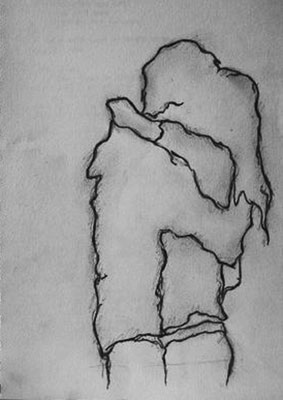All Nonfiction
- Bullying
- Books
- Academic
- Author Interviews
- Celebrity interviews
- College Articles
- College Essays
- Educator of the Year
- Heroes
- Interviews
- Memoir
- Personal Experience
- Sports
- Travel & Culture
All Opinions
- Bullying
- Current Events / Politics
- Discrimination
- Drugs / Alcohol / Smoking
- Entertainment / Celebrities
- Environment
- Love / Relationships
- Movies / Music / TV
- Pop Culture / Trends
- School / College
- Social Issues / Civics
- Spirituality / Religion
- Sports / Hobbies
All Hot Topics
- Bullying
- Community Service
- Environment
- Health
- Letters to the Editor
- Pride & Prejudice
- What Matters
- Back
Summer Guide
- Program Links
- Program Reviews
- Back
College Guide
- College Links
- College Reviews
- College Essays
- College Articles
- Back
Romeo and the Rye
“The thing is, it drives me crazy if somebody else gets killed—especially somebody very smart and entertaining and all—and it’s somebody else’s fault. Romeo and Juliet, at least it was their own fault” (Salinger 111). These “words of wisdom”, quoted from Holden Caulfield, demonstrate the idea that people do not like it when an influential character dies. Holden Caulfield, the protagonist in the novel The Catcher in the Rye written by J.D. Salinger, has made it blatantly clear that death or banishment is not palatable with the majority of audiences if it is comprised of an influential character. For Holden and Romeo Montague of Romeo and Juliet, a dramatic play written by William Shakespeare, banishment is a common experience in their life. Holden is expelled from multiple schools and Romeo is banished from the city of Verona. Both respectively have to come to the realization that there are consequences for their actions.
Holden Caulfield, nonchalant and truculent by nature, quickly comes to the rude awakening that his actions came with consequences. Holden regularly finds himself expelled from one school to the next for multifarious reasons. Holden illustrates a lack of motivation and a poor success rate in his classes. Reminded of this weakness by many people, Holden continues with his old habits. Mr. Spencer, Mr. Antolini, and others constantly explain their concerns with Holden until eventually he is expelled. As a result, Holden Caulfield spends a few days in New York City before going home, pretending to still be going to school. While in New York, Holden slowly comes to the realization that he has made some poor choices which has led him to the life he is enduring now. He gets beat up after underpaying a prostitute, he gets drunk every other night and watches his life fall apart. Towards the end of his tenure in New York City, he figures out that his situation now is because of his lack of motivation in school. But Holden who is full of pride, vows to go back to school and apply himself so he can have a brighter future. With motivation, Holden understands that he can accomplish anything he sets his mind to.
After examining Holden and his issues, Romeo Montague comes to mind as another character that has been banished and has understood the consequences of his actions. Romeo, protagonist in Romeo and Juliet, undergoes tough struggles over the course of his life. His best friend, Mercutio, is killed right in front of his eyes. Then, as a form of revenge, Romeo seeks out Tybalt and kills him just as he did to Mercutio. After killing Tybalt, Romeo is aware of the consequences of his actions so he flees. Once the families arrive at the scene, the Prince sentences Romeo to exile. Romeo then devises a plan with Friar Lawrence to clear his name. But as news comes of Juliet’s “death”, Romeo returns to Verona and kills himself so he can be with Juliet. These actions can easily be avoided if he did not kill Tybalt. Romeo recognizes that there are consequences for his actions and ultimately his death could have been prevented.
Evidently, Holden Caulfield and Romeo Montague face obstacles in their life after making poor choices previously. Whether it is the feeling of loneliness or taking your own life, both protagonists could have potentially put a stop to these terrible events if they realized the consequences of their actions before performing the action. If Holden applies himself in school and if Romeo did not kill Tybalt, their lives would have drastically changed for the better. But, they will never know because they have to live with the choices they’ve made.

Similar Articles
JOIN THE DISCUSSION
This article has 0 comments.
